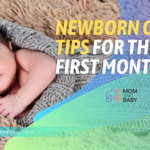Pregnancy definition is the natural process in which a woman carries a developing embryo or fetus inside her uterus, from conception to childbirth, typically lasting around 40 weeks. Understanding the pregnancy definition helps expectant parents prepare for the physiological and emotional changes that occur during this life-changing journey.
Pregnancy brings about significant physical, emotional, and hormonal transformations as a woman’s body nurtures the growing baby. From early pregnancy signs to the various stages of pregnancy, it’s important for expecting mothers to be informed and prepared.
Stages of Pregnancy

Pregnancy is divided into three distinct trimesters, each marking a specific phase of development for both the baby and mother. Understanding these stages is crucial for managing health and well-being throughout the pregnancy process.
First Trimester (0–12 Weeks)
In the first trimester, fertilization and implantation occur. The embryo starts forming critical organs such as the brain and heart. Early pregnancy signs, like missed periods, nausea, fatigue, and mood swings, are common during this stage. It’s a critical time for fetal development and often marks the beginning of the pregnancy definition.
Second Trimester (13–26 Weeks)
The second trimester is when the fetus begins to grow more rapidly, and the mother starts to notice physical changes like a growing belly. Women often feel more energized and start to bond with the growing baby, marking the true progress of the pregnancy journey.
Third Trimester (27–40 Weeks)
During the third trimester, the baby continues to mature in preparation for birth. The mother may experience discomfort, fatigue, and a mix of emotions as the due date approaches. The pregnancy culminates in childbirth during this stage.
Common Pregnancy Signs
The pregnancy definition also includes understanding the common signs that signal the onset of pregnancy. These pregnancy signs help women identify their condition early and seek the proper care.
- Missed period
- Morning sickness (nausea and vomiting)
- Fatigue and increased urination
- Tender breasts
- Mood swings and cravings
Recognizing these symptoms early can help ensure a timely visit to the doctor for proper care.
Pregnancy and Family Planning
Pregnancy is also closely related to family planning and personal choices. It’s important for couples to be educated about their fertility and options available for conception or contraception. Family planning involves the intentional decision-making process about pregnancy, ensuring both partners are aligned in their goals and health considerations.
Frequently Asked Questions (FAQs)

Q: What is the medical definition of pregnancy?
A: The pregnancy definition is the condition where a woman carries an embryo or fetus in her uterus from conception until childbirth, typically around 40 weeks.
Q: Why is understanding pregnancy stages important?
A: Knowing the stages of pregnancy helps women track the baby’s development, recognize potential complications early, and maintain good pregnancy health.
Q: Can pregnancy signs be mistaken for other conditions?
A: Yes, early pregnancy signs like fatigue or nausea can overlap with other conditions, which is why a pregnancy test or medical consultation is recommended.
Q: How long is pregnancy?
A: Pregnancy typically lasts about 40 weeks from the first day of the last menstrual period, divided into three trimesters. Each stage plays a key role in the pregnancy process.
Conclusion
Understanding the pregnancy definition and its stages provides crucial insight into the changes a woman experiences during this time. From recognizing early pregnancy signs to navigating the trimesters with proper pregnancy care, informed preparation can ensure a healthy pregnancy. It’s essential to prioritize regular prenatal care, manage emotional well-being, and make thoughtful decisions regarding family planning to foster a positive pregnancy experience.


